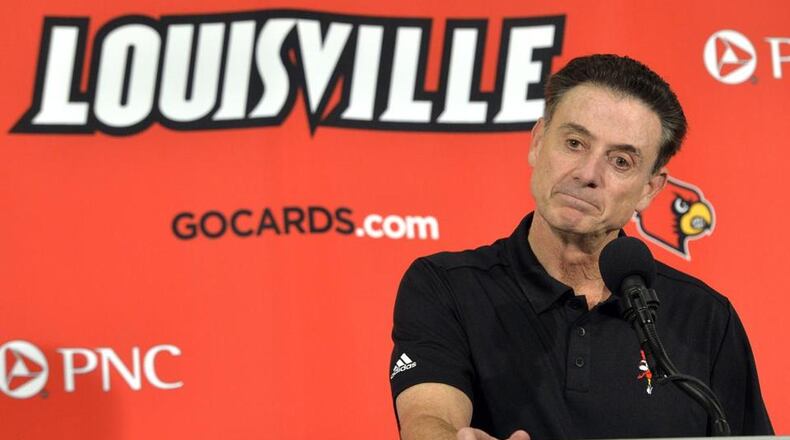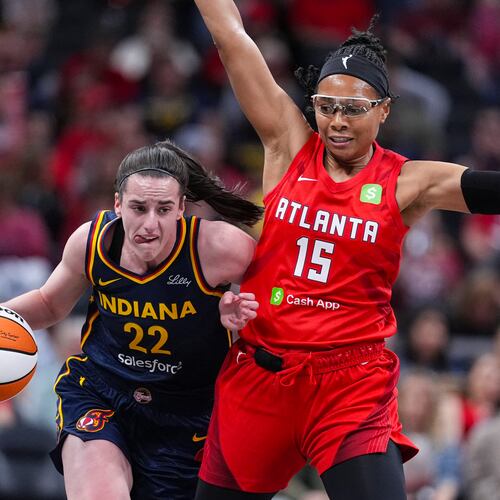The long-running NCAA investigation into the "paper classes" scandal at North Carolina took a substantial step forward Monday morning.
According to media reports, UNC received an amended Notice of Allegations from the NCAA relating to its investigation of suspect courses in North Carolina's African- and Afro-American Studies department that disproportionately benefited Tar Heels athletes.
Last May, UNC received its first NOA from the NCAA that alleged five major violations, including lack of institutional control.
Yet only days from the August deadline for North Carolina to respond, the school instead reported that it had found additional evidence of NCAA violations that centered on the actions of a women's basketball academic counselor and men's soccer recruiting violations.
Whatever the intent, that discovery had the effect of delaying any NCAA punishment until after the 2015-16 men's basketball season.
In the meantime, in spite of a university-commissioned report that documents the "phony class scheme," North Carolina has not self-imposed any penalties on itself.
Compare this to the situation at the University of Louisville.
The Cardinals' men's basketball program was rocked before last season by the publication of a book by a self-described "escort queen." Katina Powell alleges that, from 2010-14, an administrative aid in Rick Pitino's program paid her money to supply strippers and escorts to dance for and have sex with U of L players and recruits at "shows" conducted in the school's basketball dormitory.
In response, in February of this year the Louisville administration self-imposed an NCAA Tournament ban that took the Cardinals out of this year's March Madness.
In April, the school announced further self-imposed penalties, including limits on its coaches going off campus to recruit and the elimination of one men's basketball scholarship in two future seasons.
My questions: How is it fair for one school under investigation to sacrifice its current players, presumably in the hopes it will yield future leniency from the NCAA, while another school under investigation chooses to take exactly the opposite course?
When you have schools essentially using self-imposed sanctions as a means of plea bargaining for a better deal, does that not create an impression that NCAA "justice" is being dispensed in a manner that is both inconsistent and subject to manipulation?
Here's a radical thought: The NCAA would be better served if it conducted its investigations to the end, let its infractions process run its full course and then imposed penalties itself via a uniform process.
No more "self-imposing" by member schools.
From the NCAA perspective, the appeal of the "self-imposition mechanism" is that the college sports governing body wants its investigations to be collaborative with the schools under scrutiny. By allowing the school some input in how its penalties are doled out, the NCAA provides an incentive for cooperation.
For the schools, self imposing penalties provides the public relations benefit of appearing to take responsibility for alleged wrong doing.
Yet it also has created incentives for universities to use "self-imposition" to try to game the system.
In most cases, schools sacrifice the present in favor of trying to preserve the future. As Kentucky saw first hand both during the Eddie Sutton era basketball scandal and Hal Mumme era football investigation, the uncertainty that comes with unknown sanctions looming over a program cripples recruiting.
For the schools, it is often better to sacrifice the players you have rather than have the unknown hanging over a program like a guillotine.
The Louisville administration has seemingly acted from that belief. It benched its 2016 men's hoops team _ including two fifth-year, graduate transfer students who had picked Louisville specifically for a final chance to make an NCAA Tournament _ in hopes of limiting damage to the future.
Syracuse made a similar move during the 2014-15 season. Under a long-running NCAA investigation for academic fraud (among other things), the Orange self-imposed a postseason tournament ban.
That preserved Syracuse's 2015-16 season _ and the Orange made a run to the Final Four. However, that decision cost 2015 star Rakeem Christmas a last chance at the postseason.
Conversely, North Carolina did not self-impose sanctions. Additionally, the way UNC responded to the initial Notice of Allegations in its NCAA investigation had the effect _ whatever the intent _ of protecting its 2015-16 men's basketball season.
In its last-minute discovery of additional rules-breaking, was North Carolina merely reporting what it had found about its women's basketball tutoring and men's soccer recruiting? Or was it a clever bit of "lawyering" to slow the NCAA judicial process and allow the Tar Heels men's basketball team a clear shot at the 2016 national title that many expected it to win?
The image of justice within the NCAA would be better served if "self-imposing sanctions" _ or not doing so _ was off the table and we didn't have reason to ask those kind of questions.
About the Author
Keep Reading
The Latest
Featured


